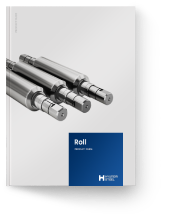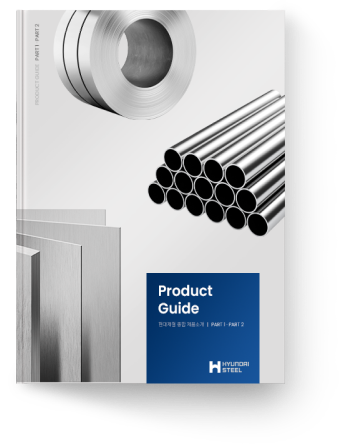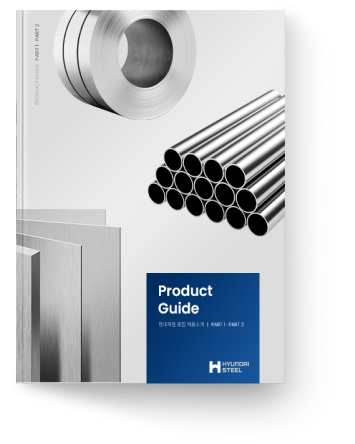Roll: Beginning of high-quality rolling technology
Supporting optimal rolling performance, even under extreme heat and pressure
Rolls are products used in the rolling of steel semi-finished products such as slabs, billets, and beam blanks. Since rolls are mounted on rolling mills to roll hot semi-finished products, wear resistance, heat resistance, and durability are essential. Hyundai Steel’s rolling rolls are used in hot rolling, heavy plate, and bar steel facilities, and their quality is recognized not only domestically but also by overseas steel companies. In particular, the high-speed steel roll (HSS Roll) for hot rolling has been selected as a world-class product.
-

- World-class products
- Designated by the Ministry of Trade, Industry and Energy of South Korea
-
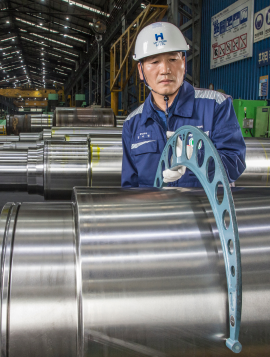
- Customized product solutions
- Optimized product development and solutions that satisfy various rolling conditions of customers, leading to improved rolling performance
-
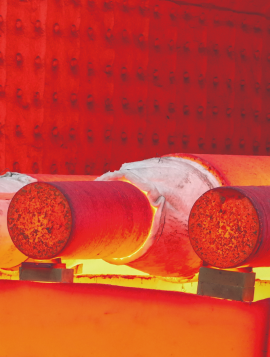
-
The only domestic
producer of large and
medium-sized rolls
-
The only domestic
-
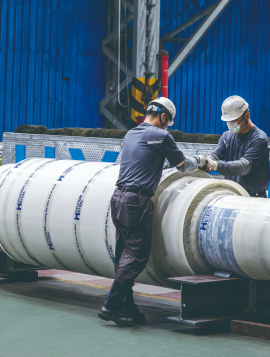
-
Supplied to
approximately 70
companies worldwide
-
Supplied to
Key products
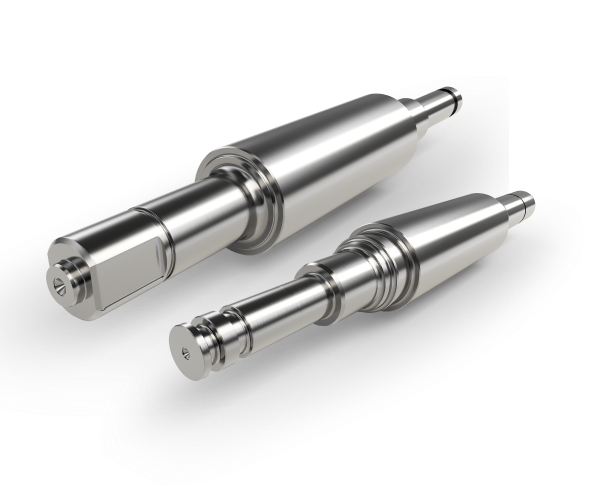
Hot strip Mill Roll
This product is used for rolling hot slabs to produce hot rolling (HR), and its product weight varies from approximately 5 to 40 tons. Typically, hot rolling mills consist of 6 to 9 rolling stands, with the front 1 to 2 (rough rolling) using relatively large roll products weighing 20 to 40 tons (diameter 950-1350 mm), while smaller roll products weighing 5 to 20 tons (diameter 600-850 mm) are generally used towards the back (finishing rolling).
Material and characteristics
| ADM (High Carbon Steel, Static & D/P) |
| ICDP & E-ICDP (Enhanced Indefinite Chilled Iron, D/P) |
| HCS & HCI (High Chromium Steel & Iron, D/P) |
| HSS (High Speed Steel, D/P) |
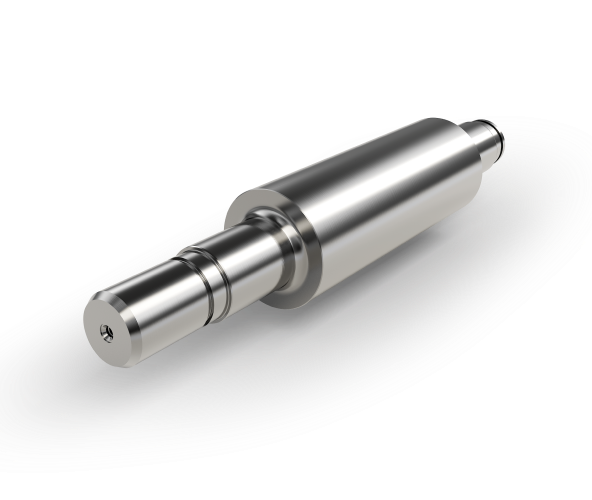
Plate Mill Roll
This product is used for rolling hot slabs to produce thick coil products. Large-sized rolls weighing between 20 to 70 tons (diameter 900-1250 mm) are mainly used to produce wide thick coil.
Material and characteristics
| ICDP & E-ICDP (Enhanced Indefinite Chilled Iron, D/P) |
| HCS & HCI (High Chromium Steel & Iron, D/P) |
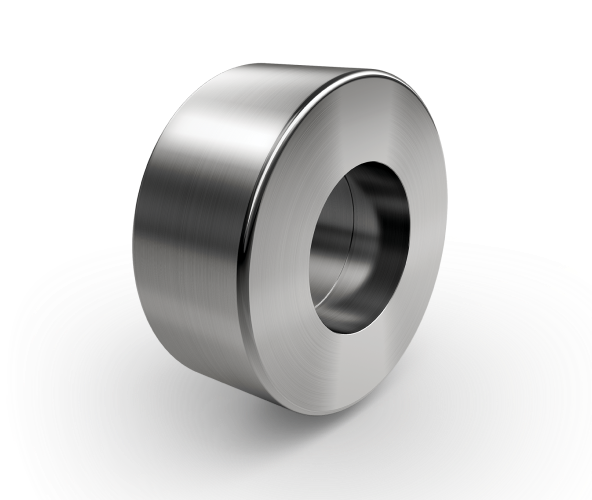
Sleeve Roll
Rode-type steel rolls used for rolling hot billets and blooms are characterized by having a contoured surface, unlike flat hot rolled/Plate Mill
Rolls.
The rolls are machined with grooves according to the shape of the products being produced, such as H-sections, I-sections, and Steel Sheet Piles.
Hyundai Steel produces sleeve rolls.
Material and characteristics
| LCS (Low Carbnon Steel, Static ) |
| ADM (High Carbon Steel, Static & D/P) |
| DCI (Ductile Cast Iron, Static) |
| HSS (High Speed Steel, D/P) |
Manufacturing process
Manufacturing process
Hyundai Steel’s roll manufacturing process consists of the stages of melting, casting, heat treatment, lathe machining and polishing, post-processing, and final inspection. By enhancing quality through various casting methods and precision processes, we produce rolls with global competitiveness.
-
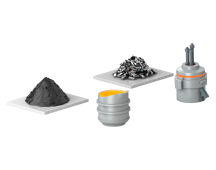 Melting
MeltingAfter designing the alloy composition suitable for the product's applications and uses, melting of the main raw materials/alloy iron is conducted.
-
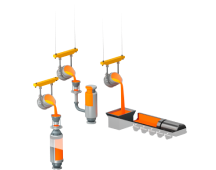 Casting
CastingRolls are manufactured in various specifications using the centrifugal casting method.
-
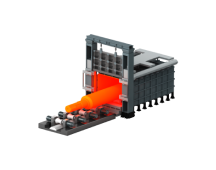 Heat treatment
Heat treatmentThe heat treatment process suitable for the material properties is applied using heat treatment equipment.
-
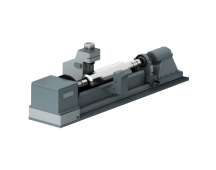 Lathe machining and polishing
Lathe machining and polishingSurface quality is ensured through machining and polishing operations according to customer drawings.
-
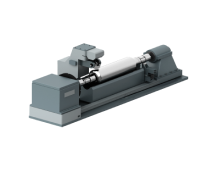 Post-processing
Post-processingInstallation of accessories as per customer requests and implementation of rust prevention measures.
-
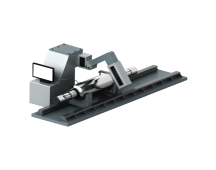 Final inspection
Final inspectionFinal product quality is verified through ultrasonic testing, dimensional and hardness measurements, and residual stress inspections.
Hynndai Steel's intergrated steelworks manufacture hot-rolled and cold-rolled coils, heavy plates, pipes, and lightweight automotive parts out of iron ore and coal. By melting lumps of raw materials, molten metal is generated in blast furnaces, after which it is purified in the steelmaking process and then goes on to the continuous casting process to make slabs that can also be hardened half-finished products. Those of slabs are thoroughly rolled at a high temperature (above 1,100℃) in order to make hot-rolled coils. After that, the cold-rolled coils are made by rolling the HRC (hot-rolled coils) at room temperature to process for final usage, which is mainly for lightweight automotive parts.
Hyundai Steel’s electric arc furnace uses steel scrap to manufacture sections, reinforcing bars, and railway rails that are used for buildings, bridges and railways. After melting the steel scrap to make molten metal, it is then smelted to eliminate impurities before proceeding to the continuous casting process to manufacture halffinished products, such as blooms and billets. These half-finished products can be rolled by reheating to increase their size as finished products, such as sections and reinforcing bars, in various sizes and thickness.



